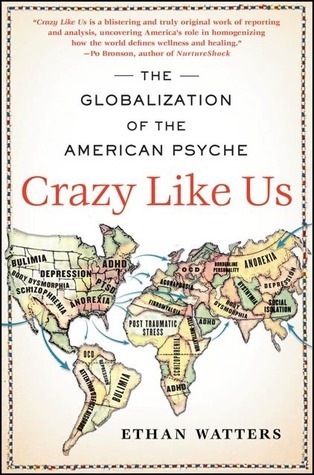Crazy Like Us Book Summary
The Globalization of the American Psyche
TL;DR
Ethan Watters' "Crazy Like Us" explores how American mental health theories and treatments are reshaping global understandings of mental illness, often with detrimental effects on local cultures and practices.
What is Crazy Like Us about
"Crazy Like Us: The Globalization of the American Psyche" delves into the profound implications of American cultural dominance, particularly in the realm of mental health. Ethan Watters argues that as America exports its mental health frameworks and pharmaceutical solutions, it is inadvertently homogenizing the world's understanding of mental illness. Cultures that once had their unique interpretations and responses to mental distress are now increasingly adopting American models, which can dilute or erase indigenous perspectives and practices. The book examines multiple case studies across different countries, illustrating how American intervention often overlooks local beliefs and customs, thus reshaping both the language and experience of mental illness. Watters contends that the repercussions of this cultural export are not just limited to distant shores; they compel Americans to scrutinize their own mental health ideologies and practices.
Crazy Like Us 8 Key Takeaways
The Globalization of Mental Illness
Watters posits that American definitions and treatments of mental illness are spreading worldwide, leading to a loss of cultural specificity in understanding mental health.
Cultural Homogenization
The book highlights how the introduction of American psychiatric practices is homogenizing unique experiences of mental illness, transforming them into a one-size-fits-all paradigm.
Impact on Local Cultures
Watters provides evidence of how Western mental health interventions often overlook and undermine local traditions and expressions regarding mental illness, causing cultural dissonance.
Case Studies
Through case studies in places like Sri Lanka and Hong Kong, Watters illustrates the tangible consequences of American psychological practices on indigenous cultures.
Critique of Western Therapy Models
The book critiques the assumption that Western therapeutic models are universally applicable and beneficial, raising ethical questions about cultural sensitivity.
Mental Illness as a Social Construct
"Crazy Like Us" argues that mental illness is not just a biomedical issue but a socially constructed concept that is influenced by cultural narratives.
Pharmaceutical Influence
Watters discusses how pharmaceutical companies actively market mental health disorders in different cultures, often reshaping local interpretations of mental health.
Reflexivity in Mental Health
The book encourages readers to reflect on their own beliefs and practices regarding mental health, suggesting that there is much to learn from other cultures.
Crazy Like Us Videos
Author Ethan Watters Discusses Crazy Like Us - YouTube
Top Crazy Like Us Quotes
- "As we export our understanding of mental health, we risk reshaping the very nature of mental illness itself across the globe."
- "Cultural beliefs have long influenced how we experience and interpret mental distress, yet American interventions threaten to erase those nuances."
Who should read Crazy Like Us?
"Crazy Like Us" is aimed at readers interested in psychology, cultural studies, and global health. It benefits mental health professionals, anthropologists, and anyone curious about the intersection of culture and mental illness, providing a critical lens through which to evaluate the effectiveness and ethics of modern psychological practices.
Crazy Like Us Best Reviews
- "Watters presents a compelling argument that challenges the way we think about mental health on a global scale, making us question the very foundations of our beliefs." - The New York Times Book Review
- "An eye-opening exploration of how American culture shapes and sometimes distorts the understanding of mental illness worldwide." - Psychology Today
People also liked these summaries
Crazy Like Us FAQs
What is the thesis of Crazy Like Us?
The thesis of "Crazy Like Us" articulates that the globalization of American mental health practices is reshaping the understanding of mental illness globally, leading to cultural homogenization and potential harm.
When was Crazy Like Us published?
"Crazy Like Us" was published in 2010 and has since sparked discussions about the impact of American culture on global mental health.
